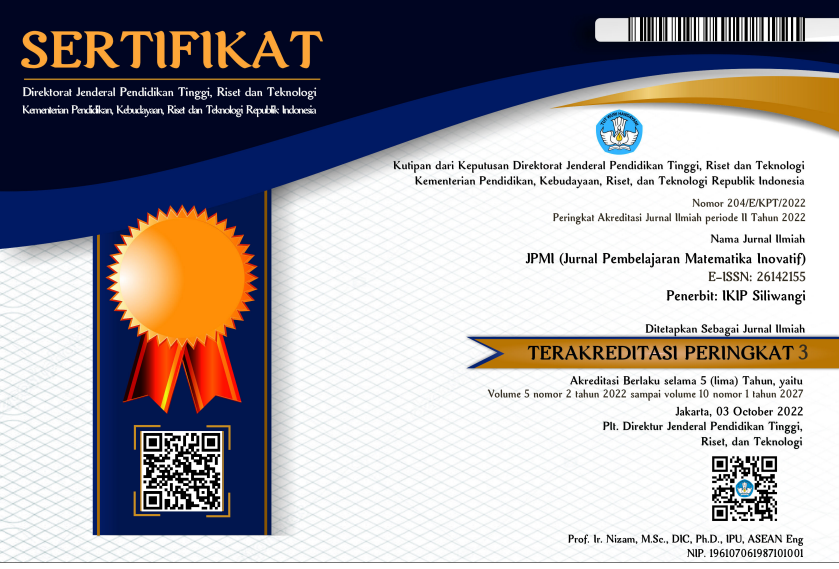About the Journal
Focus and Scope
JPMI – Jurnal Pembelajaran Matematika Inovatif publishes original research or theoretical papers about teaching and learning in mathematics education on current science issues, namely:
- Mathematics educator in elementary, secondary and high school level
- Mathematics observers and researchers
- Educational decisions maker on regional and national level
We recommend classroom action research, qualitative, descriptive, or quantitative. We may process manuscript of didactical design research (DDR) or research and development (R&D).
Our publication could be research on teaching method, experiment of teaching aid or media, and even effectiveness of lesson study. We accepted any manuscript derived from research of mathematics education. We will not process manuscript from research approach of school management.
Peer Review Process
Review process is done by double blind review policy. All papers will be critically read by at least two anonymous reviewers, selected for their competences in the subject area of the paper. Acceptance of the paper will depend upon its scientific strength and suitability for the JPMI. A paper may be accepted in its original form, subject to revision, or rejection.
The reviewers' (and editor's) suggestions will be conveyed to the author, who will then have an opportunity to revise the paper. A manuscript returned to an author for revision can be held for a maximum of four weeks.
All submitted papers will be checked for their originalities by Plagiarism Checker X software.
Publication Frequency
JPMI, Jurnal Pembelajaran Matematika Inovatif (p-ISSN 2614-221X & e-ISSN 2614-2155).
For year 2018, Volume 1, Number 1-6 are scheduled for publication (January, March, May, July, September, November).
JPMIÂ is electronically published via journal website (https://journal.ikipsiliwangi.ac.id/index.php/jpmi).
JPMI is published by IKIP Siliwangi Bandung,
Commencement of publication: January 2018
Open Access Policy
This journal provides immediate open access to its content on the principle that making research freely available to the public supports a greater global exchange of knowledge.

















